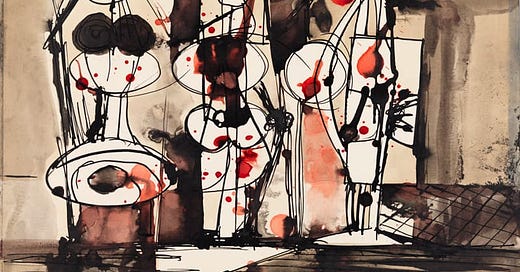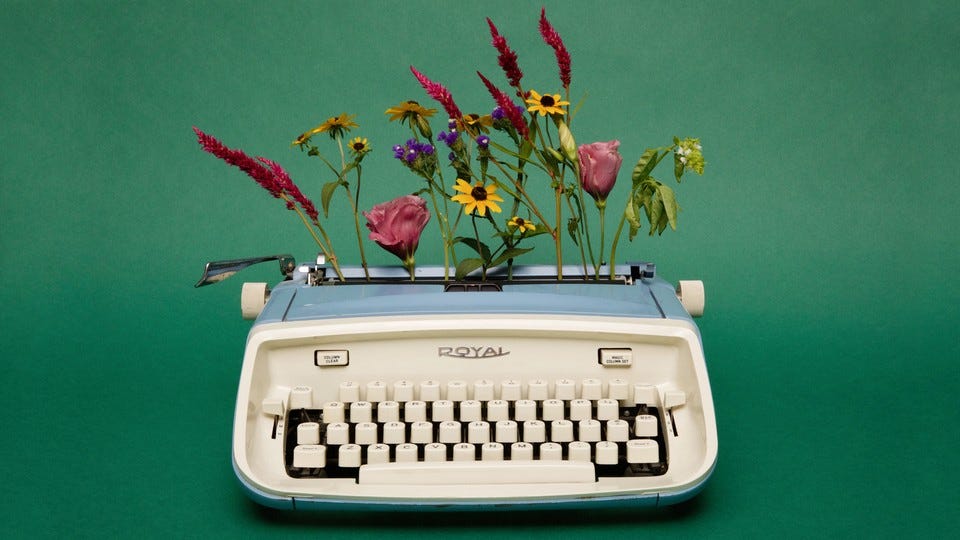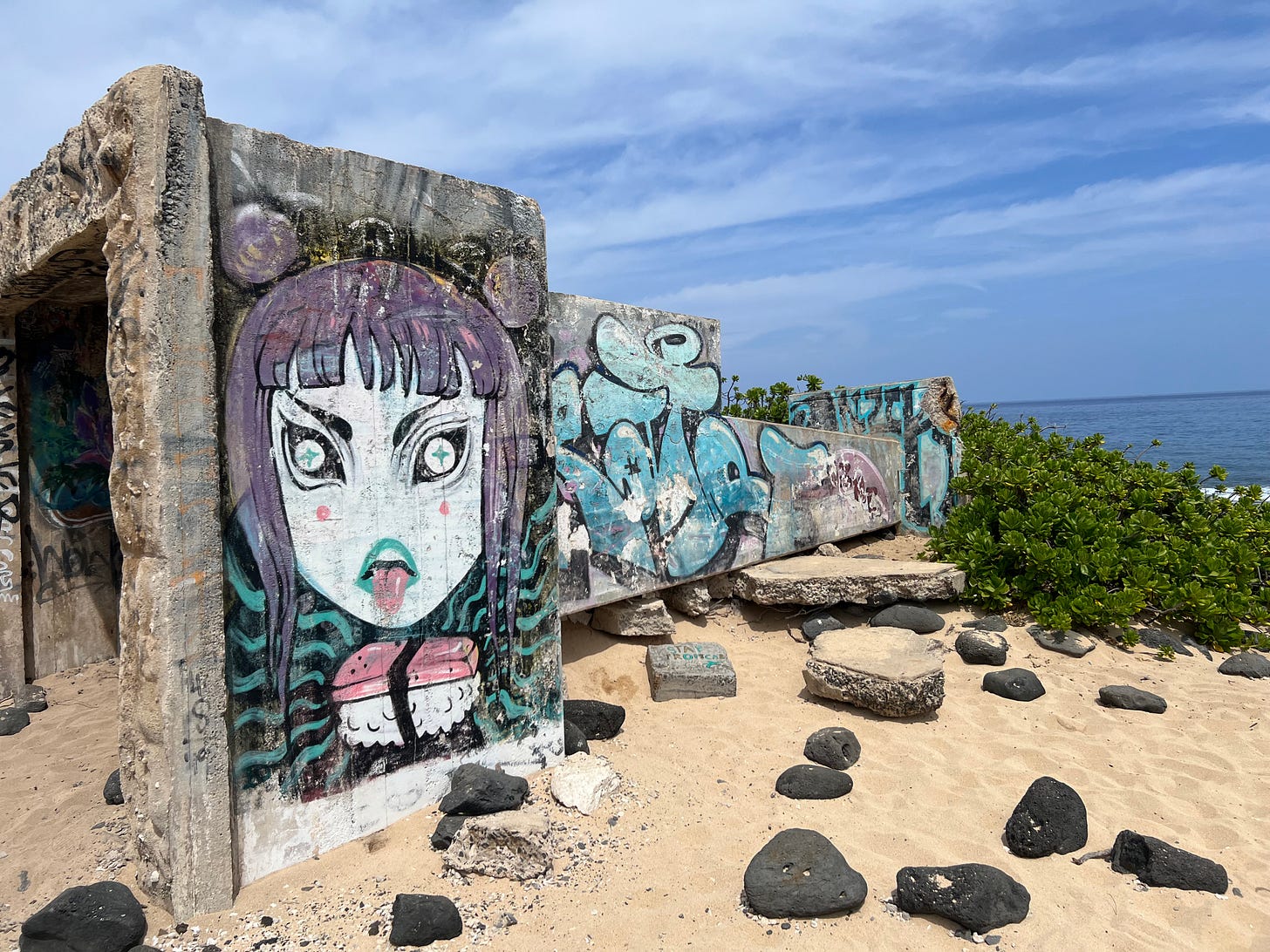One of the most difficult things in life is to declare yourself as . . . yourself.
Among the first questions people ask when they meet each other is, “What do you do for a living?” or “Where are you from?”
Humans have a deep-seated need to swiftly put people into a neat category and place them safely in a box. To be from Peoria puts you in a different category than if you’re from New York City. To be a lawyer puts you in a different category than if you’re a waiter.
We act out these categories to some extent as well, even though we’re so much more than those check boxes of identity: teacher, student, plumber, doctor, mother, son. We adopt a persona for the role we have and wear different masks as the situation demands. Our roles can certainly feel comfortable and true enough, especially the more we become habituated to them, but they aren’t necessarily the definition of who we are.
There aren’t many opportunities to tell the world—and yourself—that you’re a writer, that you spend hours in your non-persona time conjuring weird and scary tales, putting decent human beings in situations fraught with peril, painting pages with descriptions of other worlds, and penning dialogue that snarls with subtext.
In order to feel the full strength of our creativity, I believe at some point we have to be defiant—defiantly ourselves, you might say. We have to declare, “I am a writer”—say it proudly and loudly, say it with grandiosity and verve, I AM A WRITER—and accept the circumstances of living in whatever Outsiderdom befalls us.
Then we have to go even one step further. Being a writer carries with it its own assortment of masks. (What genre do you write in? Who are your favorite authors? Do you have an MFA?) We have to ask ourselves who we are as writers— what rules do we want to follow, and what rules do we want to break?
Building wings, not bird cages
“Literature is strewn with the wreckage of men who have minded beyond reason the opinion of others,” Virginia Woolf wrote in A Room of One’s Own.
We don’t want to be the writers others make us out to be. An artist is by definition a menace to conformity. The underlying purpose of deciding to write is to bring forth this mysterious and sacred gift within ourselves, to touch, revere, and express the truth of the way we see this crazy world.
If you put your story in a cage of others’ rules, your imagination will always reside behind bars. Prescriptions are a creative trap, so shed the tribalism of your stated genre and just be a storyteller. Put up your dukes and jeopardize any habituated expectations and assumptions.
The imagination is always subversive. It’s always seeking to know reality, take it further, transform it. Steel yourself to be resilient, defiant, and cunning.
“We are making birds, not birdcages,” said the poet Dean Young.
Get on that motorcycle in your mind and rev up the engine. Do a wheelie, burn some rubber, and write your story.
There’s nothing sacred about any narrative rule. Our art needs to challenge format, style, subject matter, and more. A creator needs to push against boundaries to take risks and innovate. There is an insurgency, an insurrection within us all, so dare to ask impertinent questions.
In fact, I think rebelling against the rules is actually an act of love and reverence for your voice. Pushing up against the supposed gatekeepers of taste can strengthen resolve.
When you do so, you risk inviting the naysayers in, of course. “The world in general disapproves of creativity,” said Isaac Asimov, and that’s because creativity disrupts the norms of the status quo.
Defiance isn’t an easy thing; it’s a lonely pursuit. So many people love saying, “That’s not the way we do things,” or “We’ve always done it this way,” and if you listen to them, you’ve decided to live by their rules, whether it’s the rules of storytelling or of life. Is that why you’ve decided to write a novel—to follow another’s rules?
The world gives little approbation to those who choose to be artists. You’re questioned, scrutinized, and sometimes even looked at with disdain. This feeling can make a writer want to go into hiding when just the opposite is necessary. Let your candle burn, and even pour gasoline over it if necessary. A writer needs to create with an outlaw sheen to boldly escape the snares of others’ expectations.
Simply because so many are going to tell you no, you have to find a way to turn that no into a yes—to fight against it, make it into a motivator, a source of inspiration and resilience. Nourishing your inner spitfire will help you develop a strong sense of self, to be less concerned about what others think and more focused on what you think.
This means that sometimes you’ll have to rebel against your artistic mentors, your teachers, even your favorite authors. If you work within the prisms they hand you, you’ll be tweaking and refining and tinkering within a confined space, marching in lockstep with everyone else, feeling their cadence, not your own. The most original contributions have rarely, if ever, come from the desire to please the crowd.
So put on your black leather jacket, whether literally or figuratively. Get on that motorcycle in your mind and rev up the engine. Do a wheelie, burn some rubber, and write your story. That chip on your shoulder is worth nourishing because you’ll need it.
Readers, I’ve been teaching at the Oahu Writers Retreat this week and didn’t have time to write a newsletter, so the above is an excerpt from my book, Pep Talks for Writers.
Please become a paid subscriber.
Because a quote
"Art should comfort the disturbed and disturb the comfortable."
—Cesar A. Cruz
I’m available for book coaching and editing!
I have some space on my Writing Consult calendar if you’re looking for help.
I help people develop books and projects from scratch and sometimes do larger edits on finished manuscripts.
I've worked on novels, memoirs, and some short story projects. I’ve also worked on helping people figure out what kind of writer they are or want to be, and which projects can help get them there.
Contact me to find out more about my one-on-one work with writers.
Spare a dime to support this newsletter?
Because a photo
I’ve been in Oahu this week at a very joyous writing retreat, where I’ve been teaching. I took a huge hike, saw all sorts of things, got scorched to the bone, pondered the Albatross, which spends most of their life on the ocean except when they come to the island to nest.
I took some photos of the wonders of nature, yet I’m always drawn to graffiti, the eruption of art that seems part of human nature, even on the far north point of the island, even as Albatrosses sit on their nests, so focused, so determined, so concerned with perpetuating life.








Thank you, Grant. My favorite sentence of yours in this piece is:
“A writer needs to create with an outlaw sheen to boldly escape the snares of others’ expectations.”
When I got my MFA in creative writing, I also mustered up the courage to change my LinkedIn profile to read "Poet, Writer, Editor, Musician, Father" instead of my ever-changing "job title" in what's now a 30-plus-year IT career. It was indeed an act of defiance to start calling what I do for money "my day job." Once we've taken a stand to start calling ourselves writers, we should also object if people refer to "writing" as our hobby.